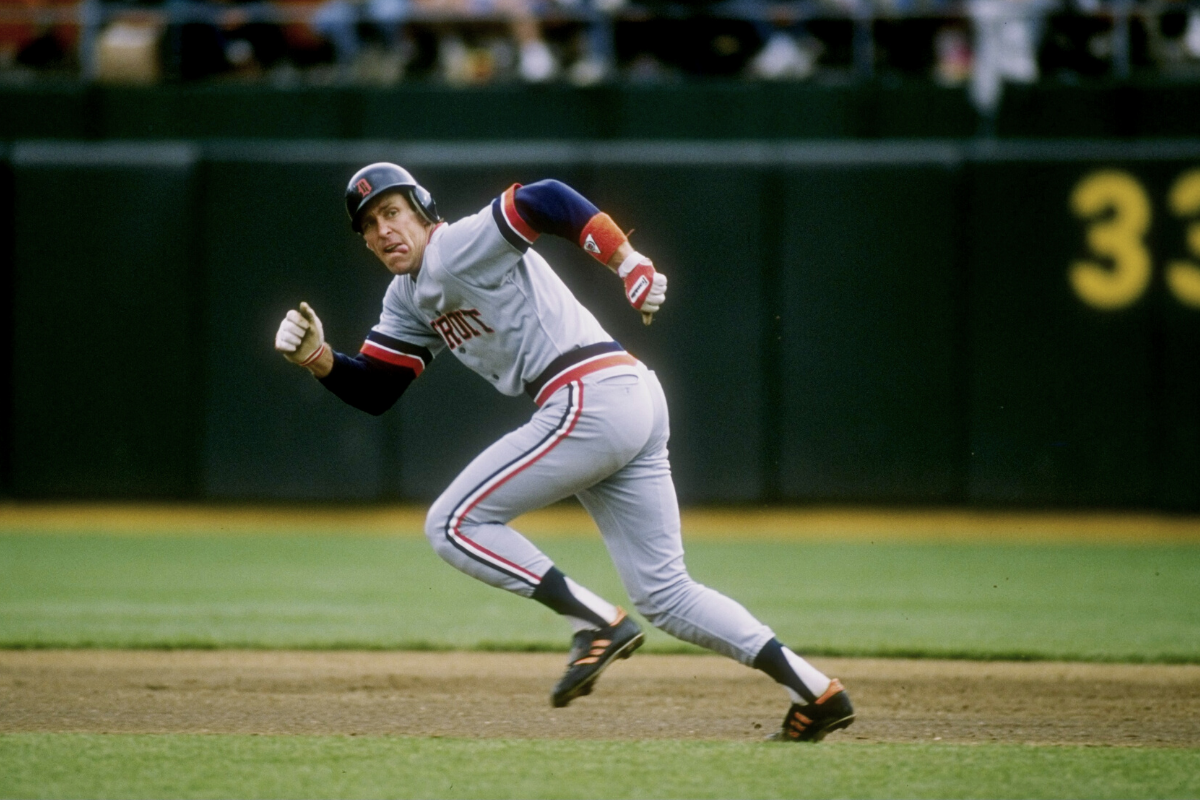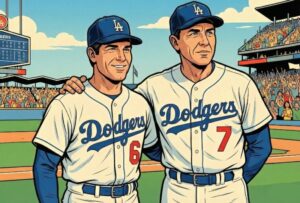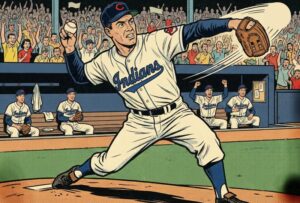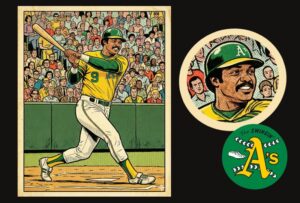Every year when a team wins the first few games of the baseball season there’s a tendency for fans to get excited. How many games can my team win? Can we set a record? Will we ever lose a game? Hope can be a delusional lubricant.
What happens to teams that get off to a fast start? To answer that question I took every team in the so-called “modern era” (since 1901) who has started the season by winning at least 30 of their first 40. In addition, I also looked at every team that won at least 17 of their first 20 games.
For the purposes of this study, I am not interested in teams that went 6-0 or went 9-1 and so on. I wanted teams that were hot at the start of the season over a longer stretch, at least three to four weeks or longer.
I found twenty teams that have won at least 30 of their first 40 games of the season, and twelve teams that won at least 17 of their first twenty games. Five teams did both, leaving me with 27 teams to study.
*Note: in 2016 the Chicago Cubs barely missed this list, going 29-11.
16 of the 20 teams who have won at least 30 of their first 40 games went on to win the pennant. Nine of them won the World Series, six of them losing it (one played before the World Series began).
Most promising for teams that win at a 75 percent clip through 40 games is the fact that 18 of the 20 teams to do so finished in first place.
When we look at teams that won at least 17 of their first 20 (twelve total), we see that four of the eight teams failed to even make the postseason. So, when it comes to “hot starts” the rule is: the longer the “start” the better we can tell if that team is truly great.
1984 Detroit Tigers
20-game record: 18-2 / 30-game record: 26-4 / 40-game record: 35-5
What happened: 104 victories and World Series champions
This is the hot teams of hot teams. The Tigers outscored their opponents 236-120 in their first 40 games. It’s one thing to go 18-2 in the season’s first 20 games, it’s another thing to follow it with a 17-3 record in the next 20. Everything was going well for the Tigers: starting pitching (Jack Morris was on a 30-win pace); hitting (four players in the top ten in hitting); defense, and the bullpen. A kid named Barbaro Garbey, who had escaped Cuba on a raft a few years earlier, was hitting .355 on May 25th and hitting third in the lineup on occasion. Every button that Sparky Anderson pushed in ’84 was the right one. For one year, this team was as good as any in the history of the game: they led the league in runs scored, fewest runs allowed, and they had the MVP and Cy Young Award winner having one of the best seasons ever by a relief pitcher. The postseason was just a formality.
1939 New York Yankees
20-game record: 15-5 / 30-game record: 24-6 / 40-game record: 33-7
What happened: World Series champions (fourth straight)
This was the Lou Gehrig & Joe DiMaggio Yankees and they won their fourth consecutive World Series title after rushing out of the gate. The Bombers used their “Three O’Clock Thunder” attack to pummel opponents (6.4 runs per game) with power, hitting 166 home runs, which was 42 more than any other team. The Yanks won 106 games and easily swept the Reds in the Fall Classic.
1928 New York Yankees
20-game record: 15-5 / 30-game record: 24-6 / 40-game record: 33-7
What happened: World Series champions (second straight)
People forget about this team because the ’27 version is so famous with Ruth’s 60 homers. The only real difference is that the ’28 club started hot and coasted in the second half. Like the two teams above them on this list, this club, led by the Babe and Lou Gehrig, had an easy time in the postseason.
1912 New York Giants
20-game record: 16-4 / 30-game record: 24-6 / 40-game record: 33-7
What happened: Lost the World Series
They cooled off in the summer and allowed the Cubs to actually get within four games, but the Giants were so good that they could turn it on when needed. The Giants went 19-9 in September and rolled to the pennant. Their top four starting pitchers won 77 games and had a combined 2.27 ERA. In the Fall Classic the Red Sox got help from a muffed play by Giants’ outfielder Fred Snodgrass in extra innings in the final game of the Series and captured the title. John McGraw insisted this was his best team, but they couldn’t seal the deal in the fall.
1902 Pittsburgh Pirates
20-game record: 17-3 / 30-game record: 25-5 / 40-game record: 33-7
What happened: Won the pennant (no World Series played)
Schedules were a bit different back in these days because of train travel, which is why the Pirates started the season playing 31 of their next 30 at home. That certainly helped the Bucs, who went 56-15 at home on the season. They had a tremendous outfield: Honus Wagner in center field (taking time off from playing short), Ginger Beaumont in left, and Fred Clarke, who was also the manager, in right. Each member of the trio hit well over .300 and paced an offense that stole nearly two bases per game. The Pirates usually blew teams out, but when they had close games they were mortal: 15-12 in one-run affairs.
2001 Seattle Mariners
20-game record: 16-4 / 30-game record: 23-7 / 40-game record: 31-9
What happened: Won 116 games, Won division title, Lost in AL Championship Series
One of the more surprising teams to do what they did. They eventually won 116 games, and they did it with a balanced team with great starting pitching, good power and speed, and fantastic defense. They deserve a lot of credit: on September 5th they notched their 100th victory in their 140th game of the year and they were 17 games up. But they kept playing hard and went 16-6 down the stretch to tie the 1906 Cubs’ for most wins in a season. Those ’06 Cubs, by the way, were only 27-13 after 40 games, but they had an amazing stretch that will likely never be equaled: after August 4th they went 48-6 to close out the season. Like the 1906 Cubs, the 2001 Mariners lost in the postseason, in this case to the Yanks in the LCS.
1998 New York Yankees
20-game record: 15-5 / 30-game record: 23-7 / 40-game record: 31-9
What happened: 114 wins and World Series champions
The Yankees were an efficient machine in ’98, scoring 965 runs, but their pitching and defense might have been even more impressive, as they allowed 79 fewer runs than the next closest team. Unlike the ’01 Mariners, these Yanks didn’t push it in the closing month, going 16-11 in September. This was the first of three straight Series titles for the Bombers.
1946 Boston Red Sox
20-game record: 17-3 / 30-game record: 24-6 / 40-game record: 31-9
What happened: Lost the World Series in seven games
A 15-game winning streak highlighted their hot start, fueled by an offense that topped seven runs 11 times in the first five weeks of the season. But their pitching, while good, wasn’t great, and that made it hard for them to sustain their early pace. Still, the Red Sox won 104 games on the season before losing to the Cardinals in seven games in the Fall Classic.
1941 St. Louis Cardinals
20-game record: 15-5 / 30-game record: 21-9 / 40-game record: 31-9
What happened: Finished second
The ’41 Cardinals are the only team to win as many as 30 of their first 40 games and not finish in first place. The Cardinals were 15-4 before they even faced the Brooklyn Dodgers, the club that caught them as early as the 43rd game and eventually claimed the pennant. The Dodgers were 28-12 through 40 games and used a 22-win August to slip past the Redbirds. The two teams split their 22 games and St. Louis was in first place by themselves for the last time on September 1st. St. Louis finished 2 1/2 games behind Pete Reiser and the Dodgers, the primary reason being that the Bums had a more potent offense. This was the year before Stan Musial came on the scene.
1929 Philadelphia A’s
20-game record: 13-7 / 30-game record: 22-8 / 40-game record: 31-9
What happened: World Series champions
This club kicked off Connie Mack’s last dynasty, winning 104 games and beating the powerful Yankees by 18 games. Their pitching staff had an off-month in August and the team went 15-14, otherwise the A’s probably would have challenged the AL record for wins, which at that time was 110 (by the ’27 Yanks). An underrated team, the Athletics had four outstanding Hall of Famers in their prime: catcher Mickey Cochrane, first baseman Jimmie Foxx, left fielder Al Simmons, and pitching ace Lefty Grove. Considering Babe Ruth and Lou Gehrig were still very much Babe Ruth and Lou Gehrig at that time, this team’s success is very impressive.
1907 Chicago Cubs
20-game record: 16-4 / 30-game record: 24-6 / 40-game record: 31-9
What happened: 107 wins and World Series champions
Over the two-year stretch of 1906-07, the Cubs won 123 games, a record that still stands. This club did what the ’06 team couldn’t — won the Fall Classic. They had company at the top of the standings in the early weeks of the season: when the Cubs were 26-8 on May 27th, they were one-half game behind the Giants. McGraw’s club went 28-12 in their first 40, but the Cubs distanced themselves from their pursuers when they swept the Giants in a three-game series in June. They ended up topping New York by 17.
1905 New York Giants
20-game record: 15-5 / 30-game record: 24-6 / 40-game record: 31-9
What happened: 105 wins and World Series champions
Led by the talented staff of Christy Mathewson, Red Ames, Iron Joe McGinnity, Dummy Taylor, and Hooks Wiltse, the Giants allowed only 505 runs. That’s a lot of goose eggs on the scoreboard. They easily manhandled the A’s in the World Series.
1977 Los Angeles Dodgers
20-game record: 17-3 / 30-game record: 24-6 / 40-game record: 30-10
What happened: Won division title, lost World Series
The Dodgers were a talented team in the mid-1970s but they were usually pushed around by the Big Red Machine, their rivals in the AL West. But this time the Dodgers rolled out of the gate, winning 20 of 22 from mid-April through the first week of May. Combined with a lackluster start by Cincinnati (who began 4-14 and were 18-22 after 40) and the division race was pretty much over by June 1st. The Dodgers actually lost ten of the 18 games they played against the Reds, but rookie manager Tommy Lasorda’s team captured 98 wins, ten more than Sparky Anderson’s Reds.
1955 Brooklyn Dodgers
20-game record: 18-2 / 30-game record: 25-5 / 40-game record: 30-10
What happened: World Series champions
Maybe they were tired of losing the World Series, but the Dodgers came out in ’55 on a mission. This team, with basically the same roster, had lost the 1949, 1952, and 1953 World Series, each time to the Yankees. The club won their first ten games by a combined score of 70-31. Then the Dodgers lost two of three before winning ten straight again, this time by a score of 65-35. By that time — just 24 games into the season — they had a 9 1/2 game lead. Their lead never got below six games, they won 98, and they finally beat the Yanks in the Series.
1942 New York Yankees
20-game record: 13-7 / 30-game record: 21-9 / 40-game record: 30-10
What happened: Lost the World Series
They were only 10-7 after 17 games, but got white-hot after that, winning 31 of their next 37 through June 14th, increasing their AL lead to 9 1/2 games. The Red Sox narrowed the lead to four by early July, but as if they could simply open a valve, the Yankees won 15 of 16 later that month and cruised to the pennant. They won 103 games, but weren’t one of the great Yankee teams, and lost to the Cardinals in the World Series.
1931 Philadelphia A’s
20-game record: 13-7 / 30-game record: 23-7 / 40-game record: 30-10
What happened: 1007 wins and Lost World Series in seven games
The second team of this three-year dynasty to make our list. This A’s group won 30 of their first 40 to put themselves up by five. But this year the going was a little tougher: in late June after the A’s lost four straight during a stretch of doubleheaders, the Senators crept within a game. After that, the Athletics put their foot on the pedal, going 30-8 through the end of July to put the pennant race away.
1926 New York Yankees
20-game record: 13-7 / 30-game record: 21-9 / 40-game record: 30-10
What happened: Lost World Series in seven games
Their 91 wins is the third-lowest for a team that won at least 30 of their first 40 games. The Yanks still managed to win the pennant, staving off challenges from the Indians and A’s. They were 14-9 and then won 16 straight, the longest winning streak of any team on this list during their first 40 games. But it was a tale of two halves: they went 41-36 after the mid-point of their schedule.
1921 Pittsburgh Pirates
20-game record: 16-4 / 30-game record: 24-6 / 40-game record: 30-10
What happened: Finished second with 90 wins
A six-game winning streak and a nine-game winning streak helped shoot George Gibson and his Pirates out to this start. But the Giants were a better team, and New York took three out of four in a series immediately following the 40-game mark to establish that point. The Bucs went 11-16 in September and finished four back of the G-Men.
1913 Philadelphia A’s
20-game record: 16-4 / 30-game record: 21-9 / 40-game record: 30-10
What happened: World Series champions
The A’s were a blistering 57-20 at the mid-point of the season, nine games up. But Mack’s club didn’t care much for setting a wins record and they coasted their way to 98 wins. They had 15-game winning streak early in the year, outscoring opponents in that stretch by 120-52. They easily dispatched the Giants in the Series.
1911 Detroit Tigers
20-game record: 18-2 / 30-game record: 25-5 / 40-game record: 30-10
What happened: Finished second with 89 wins
After 23 games the Tigers’ record was 21-2, a record. They buried their opponents under a barrage of runs, scoring 243 runs in their first 40 games (6 per game). Ty Cobb was hitting .476 after 40 games with 39 runs scored, 33 RBIs, and 23 stolen bases. It would end up being his best season at the plate. The team came down to earth: the Tigers actually had a losing record in the second half of the season (35-42), as their offense cooled a bit and their suspect pitching staff showed its’ real colors. Their biggest lead was nine games in May and they had a 5 1/2 game lead in July, but squandered it as Philadelphia flew past them and beat the Tigers by 13 1/2 in the standings.
1958 New York Yankees
20-game record: 15-5 / 30-game record: 24-6 / 40-game record: 29-11
What happened: 92 wins and World Series champions
A ten-game winning streak in May helped the Yankees build a 9 1/2 game bulge. Outside of the fast start and a hot July (when they went 22-11), the ’58 Yankees were not that special at any other point in the season. They put it together in October and got revenge by beating the Braves in the World Series, who had beaten them the previous fall.
1918 New York Giants
20-game record: 18-2 / 30-game record: 23-7 / 40-game record: 28-12
What happened: Finished second with 71 wins in a shortened season
Nine wins to start the season, lost a game, and won nine more straight to put themselves at 18-1 and 4 1/2 games up on the Cubs. The season was abbreviated due to World War I, most teams playing about 125 games. The Giants went 16-16 in July and that was pretty much it. The Cubs were a much better team, beating John McGraw’s club 14 out of 20.
1907 New York Giants
20-game record: 17-3 / 30-game record: 25-5 / 40-game record: 28-12
What happened: Finished fourth with 82 wins
The lowest finish of any team on our list, the Giants never had a lead of more than one game because the Cubs were great this year too.
2003 New York Yankees
20-game record: 17-3 / 30-game record: 23-7 / 40-game record: 27-13
What happened: Won 101 games and the division title, Lost World Series
The strong pitching quartet of Roger Clemens, Any Pettitte, Mike Mussina, and David Wells led the ’03 Yankees out to nine wins in their first ten games and 17 in their first 20. Through their first 29, Clemens was 4-1, Pettitte was also 4-1, Mussina was 6-0, and Wells was 4-0. The Yankees actually fell out of first place in May and jostled with the Red Sox for much of the season before a winning streak in August separated the two rivals.
1981 Oakland A’s
20-game record: 17-3 / 30-game record: 24-6 / 40-game record: 25-15
What happened: Won division title, Lost in AL Championship Series
When most people think of recent teams that got off to great starts they think of the ’84 Tigers, ’87 Brewers, and this team, which was managed by Billy Martin. Oakland set a record (at that time) by winning their first 11 games. They were also 17-1, but then in May they went 13-17 as their offense sputtered. They lost eight straight in May but their lead was so large it didn’t matter. The season was split by the players’ strike, and it’s possible that if it hadn’t, the A’s may have blown their division lead. On May 30th they lost their fifth straight and were only 1/2 game ahead of the White Sox. A week-and-a-half later the season stopped and Oakland was one game ahead of the Rangers. When the season resumed two months later, the A’s were crowned “first half’ division champion and didn’t need to win the second half at all. But Martin pushed his young team and they finished second behind the Royals in the second half of the season.
1938 New York Giants
20-game record: 17-3 / 30-game record: 21-9 / 40-game record: 25-15
What happened: 83 wins and third place
The Giants blew out the Boston Braves on opening day, lost the next day, but then won eleven in a row to go to 12-1. They were 18-3 but then lost 12 of 19 to fall out of first place. Like the team below them here, the ’38 Giants are a good example of why you should be cautious if a team has a great record after 20 games. It might mean something, but it could simply be a fluke.
1987 Milwaukee Brewers
20-game record: 18-2 / 30-game record: 20-10 / 40-game record: 22-18
What happened: Finished in third place with 91 wins
This is the club known as “Team Streak.” In ’87 they set a major league record by winning their first 13 games of the season. Then they were 17-1 and up by 3 1/2 games in baseball’s toughest division. But six days later on May 3rd, they lost to the Mariners in Seattle. They didn’t win again for more than two weeks, dropping 12 straight as their pitching staff collapsed and their offense imploded. Manager Tom Treblehorn must have felt like a schizophrenic, watching his troops go from the top of the heap to the bottom of the pile. The Brewers lost 18 of 20 to see their record fall to 22-21, then showing their streaky colors, they won six straight. By July they had settled where they really belonged, in fourth place looking up at the Yankees, Blue Jays, and Tigers. They were 60-56 in mid-August and then caught fire again, going 31-15 to end the season. Probably their biggest contribution to the pennant race was a three-game sweep of Toronto in the last week of the season that helped sink that club.







